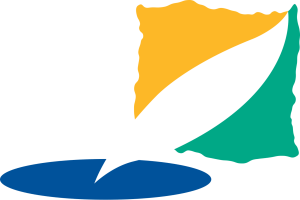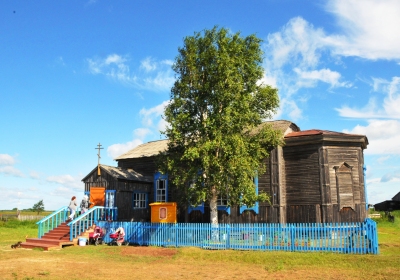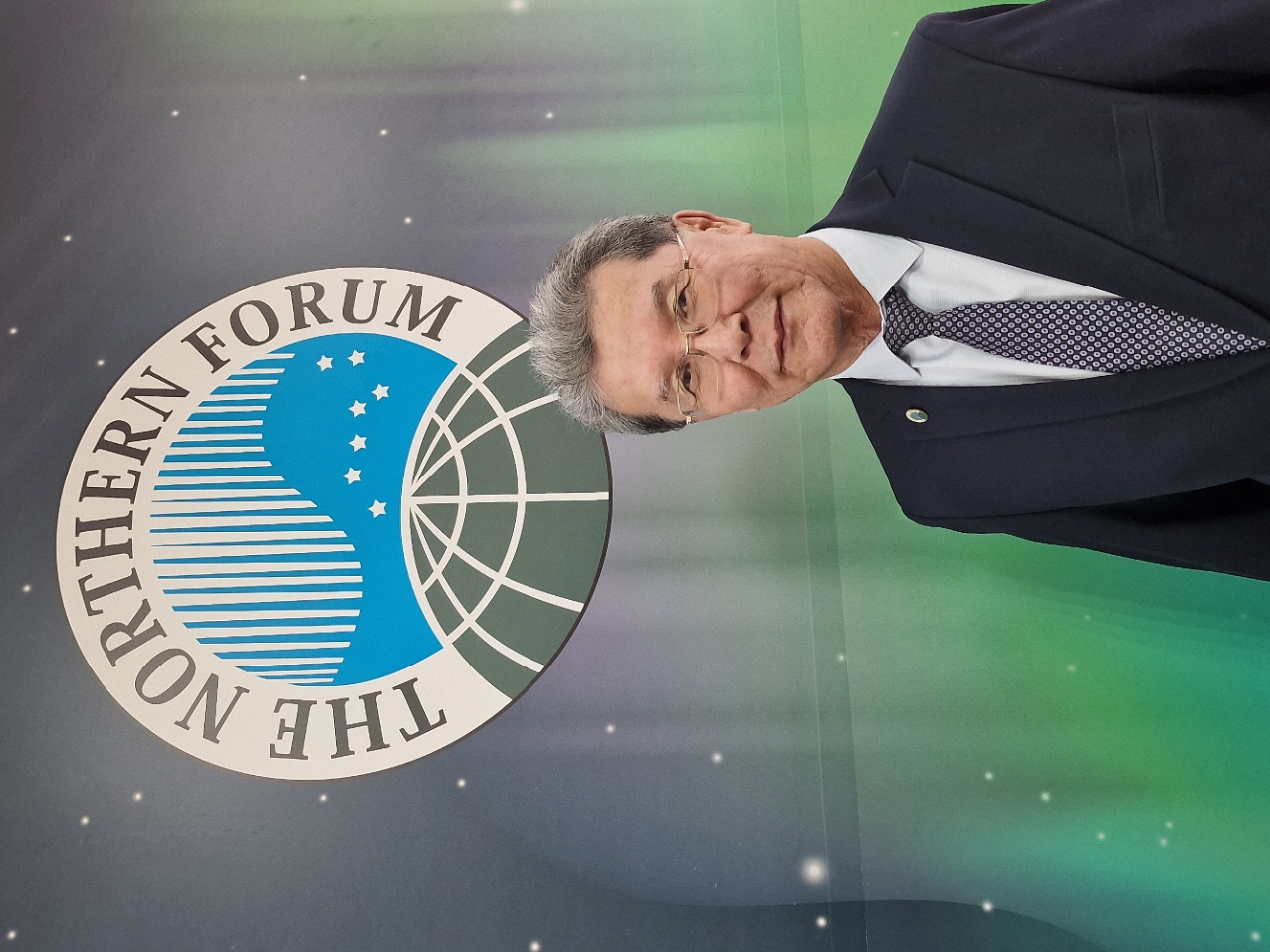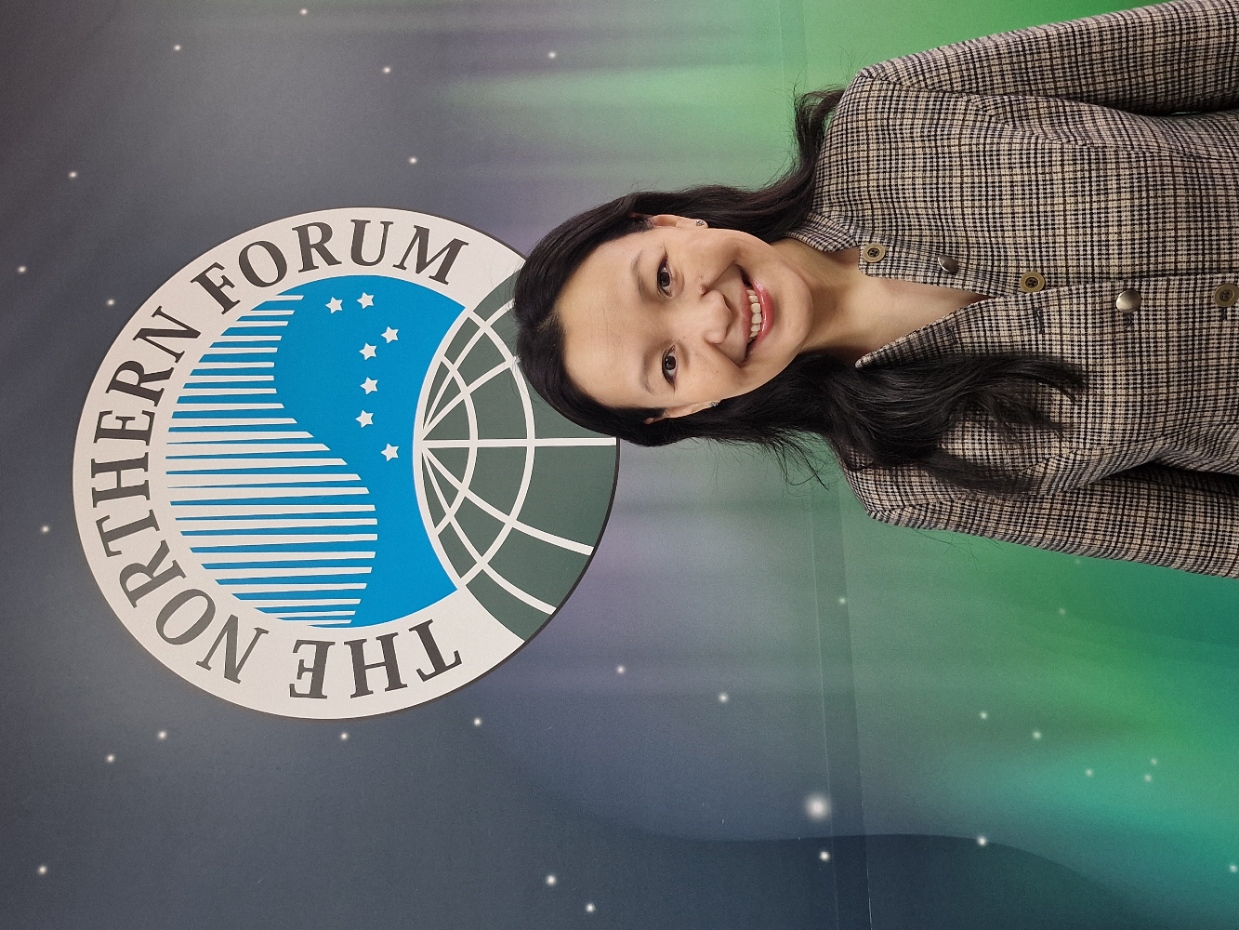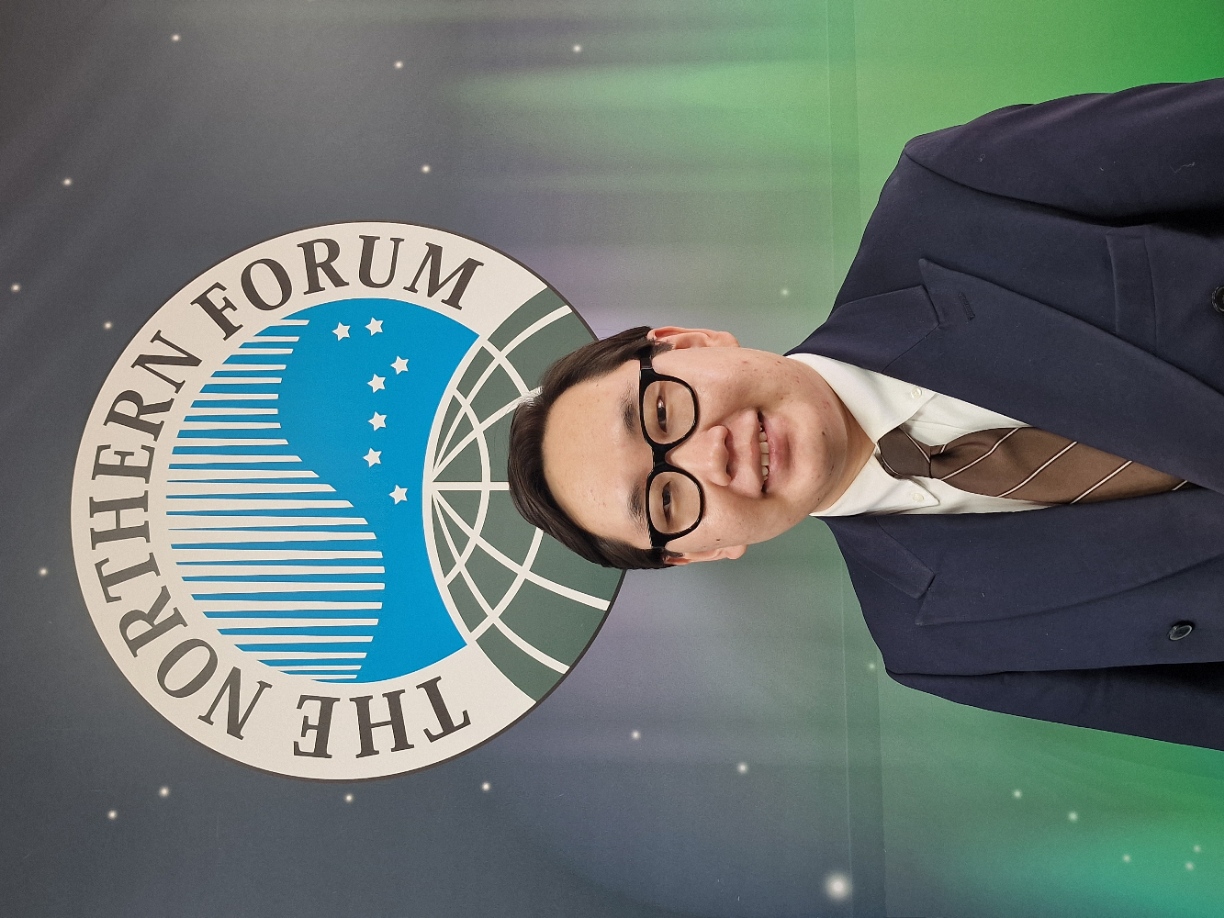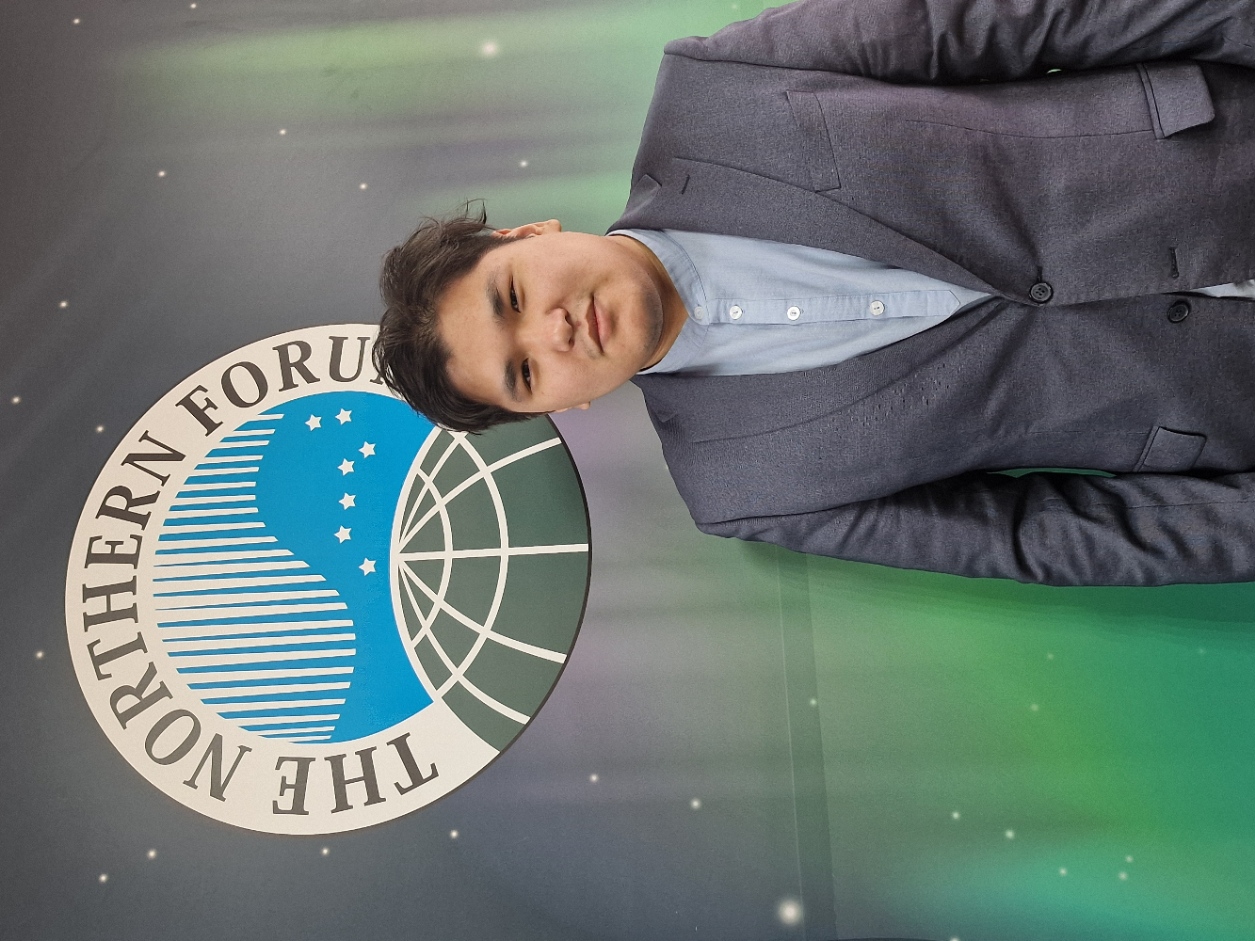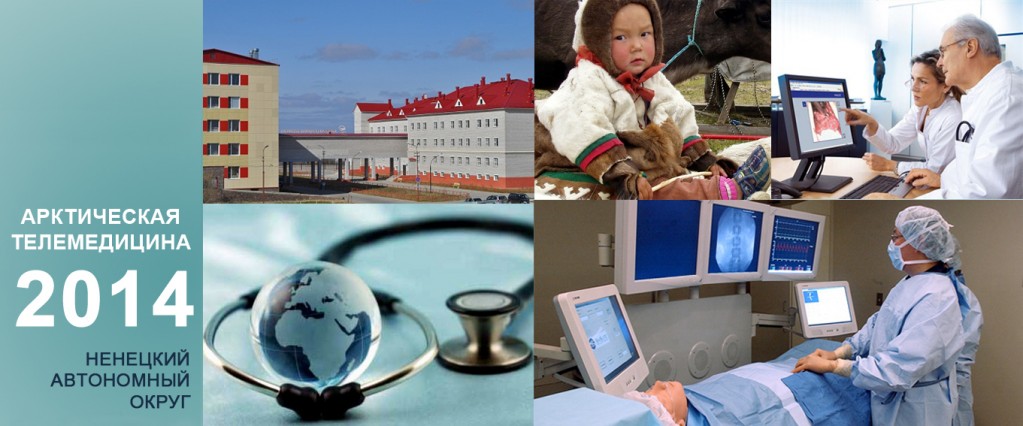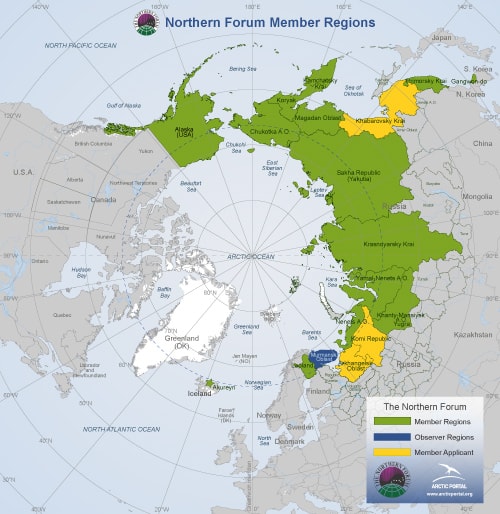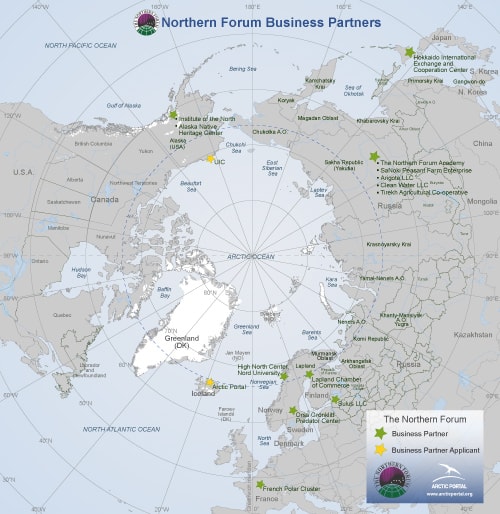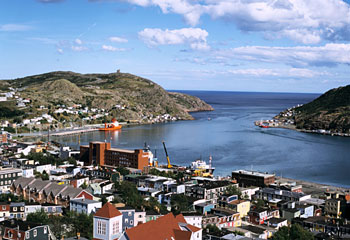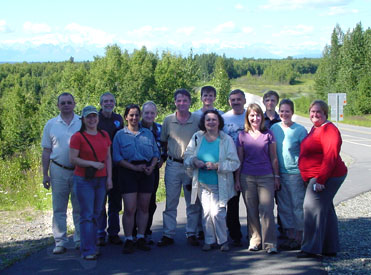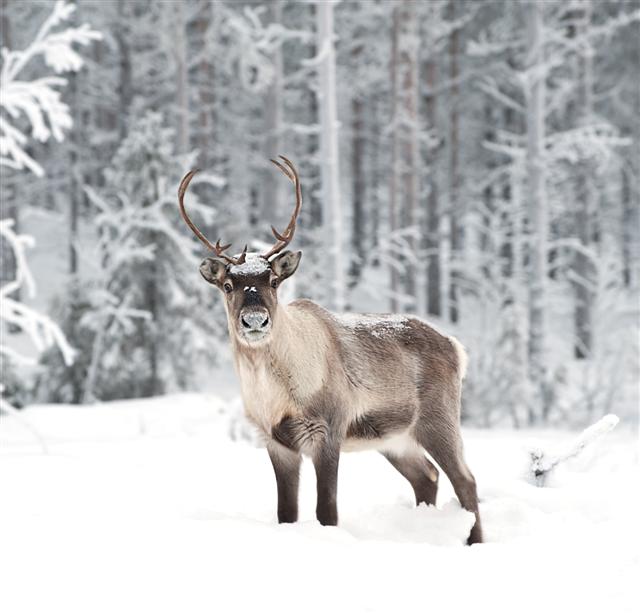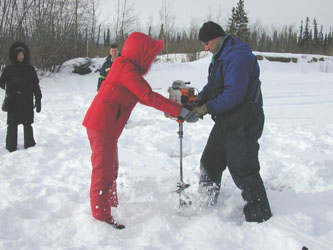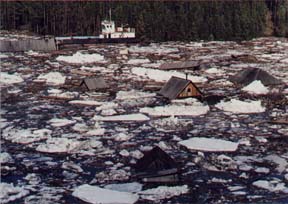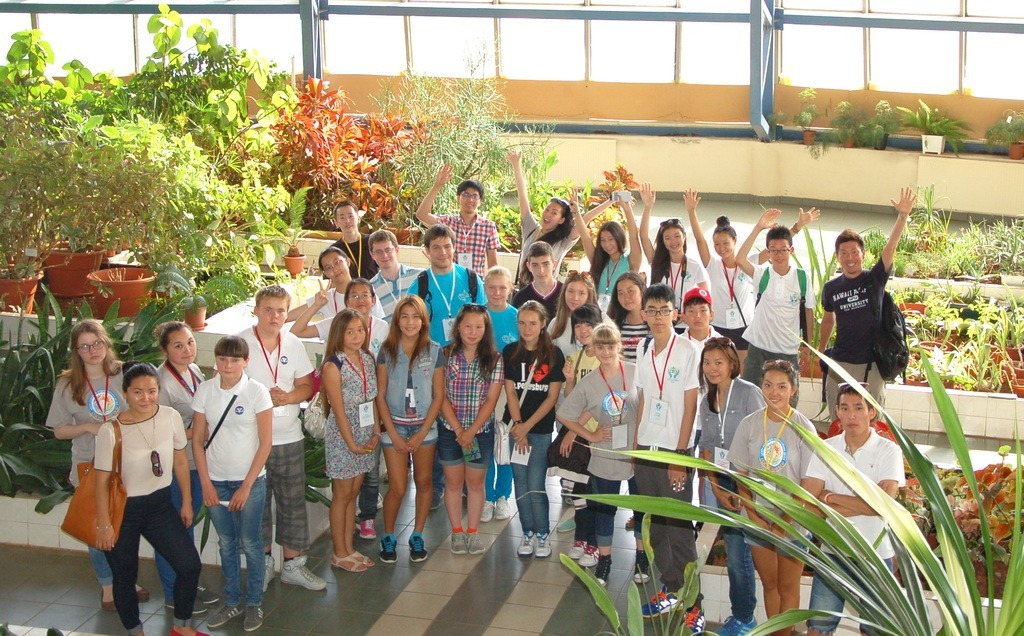Articles
Coming soon....
The Project Participants working area contains .........
The Regional Coordinators Committee is the main collegial body coordinating the ongoing activities of the Northern Forum, ensuring the smooth and dynamic work of the organization.
The Committee contributes to the timely preparation of meetings as the Governors Summit and provides significant support to project activities and the Northern Youth Forum. The members of the Committee are actively involved in the events of not only the Northern Forum, but also its partner organizations.
As per the Bylaws and the Rules of Procedure, the Committee has to meet at least twice a year.

Sergey Kungurtsev
Nenets Autonomous Okrug, Russia
Chairman of the Committee for International and Interregional Relations, Department of Digital Development, Communications and Mass Media
Chair of the Regional Coordinators Committee

Gavril Kirillin
Republic of Sakha Republic, Russia
Minister for External Relations and Ethnic Affairs of the Sakha Republic (Yakutia)
Vice-Chair of the Regional Coordinators Committee

Inna Arkanova
Khanty-Mansiysk Autonomous Okrug - Yugra, Russia
Deputy Director of the Department
Khanty-Mansi Autonomous Okrug – Yugra

Dmitry Korostelev
Kamchatka Krai, Russia
Vice-Speaker of the Legislative Assembly of Kamchatka Krai
President of Kamchatka Krai Chamber of Commerce

Alexander Podoroga
Yamal-Nenets Autonomous Okrug, Russia
Deputy Governor of Yamal-Nenets Autonomous Okrug

Valery Semyonov
Krasnoyarsk Krai, Russia
Deputy Governor of Krasnoyarsk Krai

Anna Tarasenko
Jewish Autonomous Oblast, Russia
Deputy Chairman of the Government of the Jewish Autonomous Region

Dmitry Portnov
Magadan Oblast, Russia
Deputy Chairman of the Government of Magadan Oblast

Valentina Filonenko
Khabarovsk Krai, Russia
First Deputy Minister of Economic Development of Khabarovsk Krai

Anton Yaremchuk
Chukotka Autonomous Okrug, Russia
Deputy Governor - Deputy Chairman of the Government of the Chukotka Autonomous Okrug, Head of the Department of Economy and Investment
The Regional Coordinators working area contains .......
Rural Development is not an active project, yet it is an already-running initiative that has been showcased on the 2013 General Assembly of the Northern Forum by a Head of Shapsha village from Khanty-Mansiyskiy AO, Russia - a village with impressive results of sustainability.
Climate change, increasing energy costs and the need to reduce the production of greenhouse gas emissions have generated a new focus on sustainable energy production, particularly in remote and northern regions. Significant work has been done through the Arctic Council to look at oil and gas resources, but little focus has been given to the development of resources and technologies to improve energy efficiency and energy security. There is a need to have a closer look at sustainable energy technologies, their development and application, as a way to support more sustainable economic and community development. The 2008 SDWG Energy Report to Ministers recommended an Arctic Renewable Energy Assessment to report on” the status of renewable energy developments in the northern circumpolar region, and to assist in identifying a research agenda in relations to Arctic renewable energy issues.” (p.28)
Latest activities:
Presentation by Lyubov Ovcheryukova, head of Shapsha village of the Khanty-Mansiysk AO, at the RCC Meeting in Moscow in October 2013 – about work carried out on sustainable development in the village.
Leading region: Khanty-Mansiysk
Contact:
Lyubov Ovcheryukova, Head of Shapsha village, Khanty-Mansiysk AO; tel: +7(3467)37-24-33, 37-25-15;
picture link: http://hmrn.ru
Secretariat of the Northern Forum
The Secretariat is located in Yakutsk, Sakha Republic (Yakutia), Russia. This executive body ensures the smooth operation of the organization and facilitates cooperation between northern regions.
Key Responsibilities:
- Information gathering for member regions.
- Assisting in communications among regions.
- Coordinating international meetings and summits.
- Developing funding for cooperative projects.
- Translating official documentation.
"Working closely with the Regional Coordinators, the Secretariat implements meeting plans and helps members address issues of concern as well as opportunities."
Our Team
Tatiana Makarova
Project Manager
—Artem Kirillov
Project Manager
—Erkhaan Nikolaev
Project Manager
—Contacts
📍 Kurashov street 24, office 407, 407a
🏙 Yakutsk, Sakha Republic (Yakutia), 677000 Russia
📞 +7 (4112) 50-84-50 (IP: 71750)
Quick Navigation
Society and Culture program brings together a variety of projects that concern social and cultural issues with a closer focus on social problems. As social problems are an endless source for finding solutions and new approaches, in the North their effects sometimes are even more dangerous - even threating whole communities and their residents individually, rather than single human beings. Projects are built around strictly psychological and sociological working groups, medical working groups and IT cooperation schemes.
Projects in this program are: Suicide Prevention, Telemedicine, Infectious Diseases
Dangerous situation with alcohol and drug addiction in the Russian North and state of Alaska has forced the Northern Forum to launch a working group in 2006 to address improvement of rehabilitation programs in Russia and in Alaska. Firstly the working group consisted of Vologda Oblast, Komi Republic, Sakha Republic, city of St. Petersburg, Khanty-Mansiysk and Chukotka AO. Currenty, all events are held by the Sakha Republic and Khanty-Mansiysk AO. This project is led by the Khanty-Mansiysk.
Aim of the project: to improve rehabilitation programs, treatment and rehabilitation of drug and alcohol addicted individuals located in the Northern Forum member regions.
Held events:
- Training seminars attended by American specialists. Resulting publications: “Modern approaches to treatment and rehabilitation of alcohol and drug addictions in the North”, Khanty-Mansiysk 2006; “Training course for treatment and prevention of dangerous addictions in the Nort”h, Khanty-Mansiysk 2007; videoconference “Stages and strategies of short-term outpatient rehabilitation of drug and alcohol addicted patients in the North”, Khanty-Mansiysk 2008.
- Khanty-Mansiysk psycho-neurological dispensary hosted an experimental platform for prevention and rehab of drug addicted individuals, 2008; http://narkohealth.ru
- Khanty-Mansiysk delegates travelled to the United States to research current working concept and rehab standards of drug addicted patients in the USA, 2008
- A rehabilitation program for addicted patients in the North was developed and incepted.
- Clarification and updates of the working group’s participants list and of the Northern Forum member regions willing to participate in the project (First half of 2014)
- Organization of the working group’s assembly to develop and approve the group’s working plan for 2014-2015 (First half of 2014)
- Distribution of treatment model and rehabilitation of addicted patients in local hospitals, NF member regions (2014-2015)
- Experience exchange, publication of handbooks, round tables, science conferences etc. (2014-2015)
To support this project and inform the Northern Forum of its progress, Mr. Novikov has given a presentation during the RCC meeting in October 2013.
Leading region: Khanty-Mansiysk
Contacts: Novikov Andrei Petrovich, Chief medical officer at the Khanty-Mansiysk AO Surgut State Psycho-neurological clinic;mobile +7(90281) 46-1-58 ;
Participants
Sakha - Matveyeva Nyurguyana Petrovna, MD-PhD, NF working group on Healthy Lifestyle, mobile +7(914)100-33-99, ;
Chukotka - ?
Yukon - ?
The Northern regions are usually sparcely populated and communication between settlements is often either hard, or not possible. In conditions like this, support of the modern healthcare system capable of treating serious diseases appears as incredibly expensive and nearly impossible. However, use of modern technologies can sufficiently simplify and cheapen functioning of remote healthcare centers.
This pilot project has reached certain success in workshops and experience exchange in Anchorage, Khanty-Mansiysk, Yakutsk, Seattle and Pyeonchang. Experts from Khanty-Mansiysk and the Sakha Republic held meetings with experts from the United States, Republic of Korea (Gangwon) and Finland – what accelerated the inception of this technology in life. Priority topic on all meetings remains the technological aspect of telemedicine initiative.
During work of this initiative, specialists from Khanty-Mansiysk and Sakha held meetings with experts from the United States, South Korea (Gangwon Province) and Finland – what allowed toincept this remote treatment technology into life. Experience exchange is held mostly around technical issues.
This project is funded by participating organizations
Contact: Tsaregorodcev Alexander Leonidovich,
Deputy Director for science in URIIT Institute, Khanty-Mansiysk AO, t. +7(3467)35-91-35; email:
The Northern regions are usually sparcely populated and communication between settlements is often either hard, or not possible. In conditions like this, support of the modern healthcare system capable of treating serious diseases appears as incredibly expensive and nearly impossible. However, use of modern technologies can sufficiently simplify and cheapen functioning of remote healthcare centers.
This pilot project has reached certain success in workshops and experience exchange in Anchorage, Khanty-Mansiysk, Yakutsk, Seattle and Pyeonchang. Experts from Khanty-Mansiysk and the Sakha Republic held meetings with experts from the United States, Republic of Korea (Gangwon) and Finland – what accelerated the inception of this technology in life. Priority topic on all meetings remains the technological aspect of telemedicine initiative.
During work of this initiative, specialists from Khanty-Mansiysk and Sakha held meetings with experts from the United States, South Korea (Gangwon Province) and Finland – what allowed toincept this remote treatment technology into life. Experience exchange is held mostly around technical issues.
This project is funded by participating organizations
Contact: Nikolayev Matvei Khristoforovich, Sakha Healthcare Ministry, Coordinator for Telemedicine, Head of Telemedicine Department, State budget organization YRMIAC , m/t. +7(914)224-68-52, landline. +7(4112)42-96-51;
Participants: Khanty-Mansiysk: Tsaregorodcev Alexander Leonidovich,
Deputy Director for science in URIIT Institute, Khanty-Mansiysk AO, t. +7(3467)35-91-35; email:
picture link: http://internetmedicine.com
The Northern Forum is a non-profit, international organization composed of thirteen sub-national or regional governments from five countries.
Green shows the current NF regions, Yellow shows membership applicants.
The Northern Forum Members include:
- Akureyri, Iceland
- Kamchatka Krai, Russian Federation
- Krasnoyarsk Krai, Russia
- Magadan Oblast, Russian Federation
- Nenets Autonomous Okrug, Russian Federation
- Primorsky Krai, Russian Federation
- Gangwon Province, Republic of Korea
- Lapland, Finland
- Sakha Republic, Russian Federation
- Khanty - Mansiysk Autonomous Okrug, Russian Federation
- Chukotka Autonomous Okrug, Russian Federation
- State of Alaska, USA
- Yamalo - Nenets Autonomous Okrug, Russian Federation
The Northern Forum Business Partners include:
- Alaska Native Heritage Center, Alaska
- Arctic Portal, Iceland
- Energy Saving Technologies LLC, Yakutsk, Russian Federation
- French Polar Cluster, France
- High North Center, Norway
- Hokkaido International Exchange and Cooperation Center, Japan
- Institute of the North, Alaska, USA
- Lapland Chamber of Commerce, Finland
- SMYK Master Polygraphy LLC, Yakutsk, Russian Federation
- Sulus LLC, Russian Federation
- The Northern Forum Academy, Russian Federation
- Ukpeagvik Iñupiat Corporation, Alaska, USA
1974
First International Conference on Human Environment in Northern Regions
December. Sapporo, Hokkaido, Japan
 Hosted by Hokkaido Governor Naohiro Dougakinai, this inaugural conference brought together representatives from the Canadian provincial governments of Alberta, British Columbia, Manitoba, New Brunswick, Nova Scotia, Ontario, Saskatchewan, and Northwest Territories; United States state governments of Alaska, Idaho, Minnesota, North Dakota, Oregon, Washington, and Wisconsin; and representatives from the capital cities of Finland, Norway, and Sweden. The conference made evident a multitude of environmental, climactic, economic and social commonalities faced by residents in northern regions.
Hosted by Hokkaido Governor Naohiro Dougakinai, this inaugural conference brought together representatives from the Canadian provincial governments of Alberta, British Columbia, Manitoba, New Brunswick, Nova Scotia, Ontario, Saskatchewan, and Northwest Territories; United States state governments of Alaska, Idaho, Minnesota, North Dakota, Oregon, Washington, and Wisconsin; and representatives from the capital cities of Finland, Norway, and Sweden. The conference made evident a multitude of environmental, climactic, economic and social commonalities faced by residents in northern regions.
Participants at the conference came to understand that, as regions with similar climatic conditions, they shared many environmental challenges. They discovered that the way one northern region addressed a particular issue might apply to similar issues in many - if not all - northern regions. Government representatives realized that improved communication and cooperation could vastly enhance the way of life for all residents of the North. Furthermore, delegates acknowledged the value of holding regular meetings to discuss these commonalities. They vowed to work diligently as a whole on issues of shared importance.
During his closing address, Governor Dougakinai proclaimed, "It is earnestly desired that this three day-conference will produce fruitful results for the happiness of all peoples living in northern regions through the active exchange of views among the participants and that it will contribute to the promotion of friendly relations and to the social development of the entire region.
The seeds for the establishment of the Northern Forum were planted.
1979
Second International Conference On The Human Environment in Northern Regions
September, Edmonton, Alberta, Canada
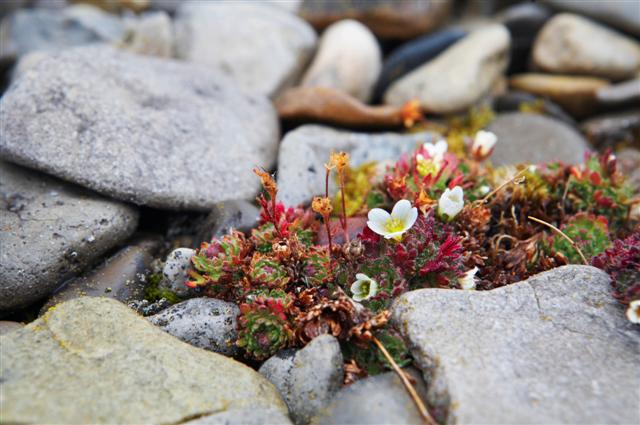 Participants determined that renewed vigor must be given to maintaining the balance among natural resource development, environmental protection and quality of life. Some governors worked to convey to each other that all might benefit from an organization which made it possible to act cooperatively to resolve seemingly intractable problems shared by those who live in Northern climates. Other regional leaders, preoccupied by their own immediate concerns and mandates, listened to these visionary suggestions.The Conference focused on human settlements. Specific sessions were held on: urban growth; the creation of new towns as a result of accelerated natural resource development; planning for the rapid expansion of existing settlements; and enhancing the livability of older towns and cities.Policy makers from twenty-two provincial, regional, and municipal governments gathered to address issues relative to improving the quality of life in northern regions. Peter Lougheed, Premier of Alberta, expressed hope at the opening ceremony that the exchange of information would extend beyond human environment issues to create a better understanding between different peoples inhabiting similar parts of the world. However, little was done beyond polite acknowledgement until 1990. A major part of the North, Russia's vast Northern Territories, were as yet unable to participate.
Participants determined that renewed vigor must be given to maintaining the balance among natural resource development, environmental protection and quality of life. Some governors worked to convey to each other that all might benefit from an organization which made it possible to act cooperatively to resolve seemingly intractable problems shared by those who live in Northern climates. Other regional leaders, preoccupied by their own immediate concerns and mandates, listened to these visionary suggestions.The Conference focused on human settlements. Specific sessions were held on: urban growth; the creation of new towns as a result of accelerated natural resource development; planning for the rapid expansion of existing settlements; and enhancing the livability of older towns and cities.Policy makers from twenty-two provincial, regional, and municipal governments gathered to address issues relative to improving the quality of life in northern regions. Peter Lougheed, Premier of Alberta, expressed hope at the opening ceremony that the exchange of information would extend beyond human environment issues to create a better understanding between different peoples inhabiting similar parts of the world. However, little was done beyond polite acknowledgement until 1990. A major part of the North, Russia's vast Northern Territories, were as yet unable to participate.
1990
Third Northern Regions Conference: Cooperation in a Changing World
September, Anchorage, Alaska, U.S.A.
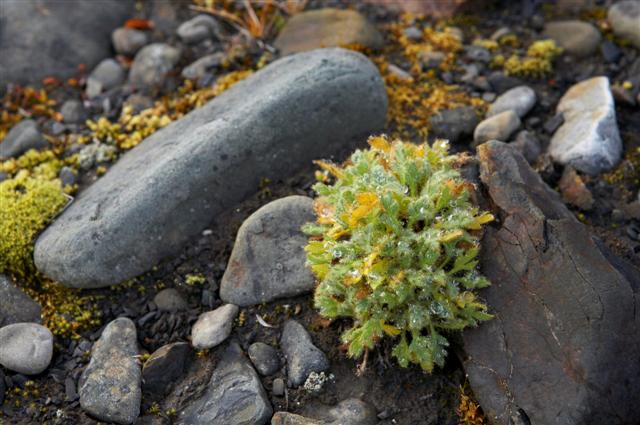 With the dramatic opening of the Soviet Union to the outside world, northern Russia provided the final piece of the puzzle in the movement to create a permanent "Voice of Northern Regions." Some 600 delegates to this third conference concluded that historical northern trans-border cooperation, largely sporadic and ad hoc in nature, was an anachronism. Participants recommended that a permanent regional organization by the name of the Northern Forum be established.This organization was intended to act as a mechanism "to improve the quality of local, national, and international decision-making regarding northern issues by providing a means through which northern voices can be heard at all stages of the process." Delegates also hoped that the Northern Forum would "offer opportunities to exchange ideas, solve common problems, and plan cooperative initiatives regarding issues that are unique to the North."
With the dramatic opening of the Soviet Union to the outside world, northern Russia provided the final piece of the puzzle in the movement to create a permanent "Voice of Northern Regions." Some 600 delegates to this third conference concluded that historical northern trans-border cooperation, largely sporadic and ad hoc in nature, was an anachronism. Participants recommended that a permanent regional organization by the name of the Northern Forum be established.This organization was intended to act as a mechanism "to improve the quality of local, national, and international decision-making regarding northern issues by providing a means through which northern voices can be heard at all stages of the process." Delegates also hoped that the Northern Forum would "offer opportunities to exchange ideas, solve common problems, and plan cooperative initiatives regarding issues that are unique to the North."
During the proceedings, several issues of common concern were identified as having priority within the scope of a northern regional organization's activities:
- Environmental assessment, monitoring and research.
- Pollution prevention and clean-up.
- Human resources, including culture, education, and health.
- Cooperative management of northern renewable natural resources.
- Northern technology and engineering.
- Physical infrastructure, including northern communications and transportation systems.
Furthermore, it was decided that the Northern Forum would locate its main office, or Secretariat, in Anchorage, Alaska.
1991
The Northern Forum Founding Meeting
November. Anchorage, Alaska, U.S.A.
In what may be seen as the culmination of years of conferences, multilateral meetings and frank apolitical discussion, the Northern Forum was formally established with eleven regional members from nine northern countries.
The founding members included: Yukon Territory, Canada; Heilongjiang Province, Peoples' Republic of China; Lapland, Finland; Hokkaido, Japan; Dornod, Mongolia; Trondelag and Tromso, Norway; Chukotka Autonomous Okrug, Kamchatka Oblast', Magadan Oblast', Russian Federation; Republic of Korea; and the state of Alaska, U.S.A
All inaugural members agreed that the future held boundless potential for the Northern Forum and that, together, the Northern Regions had many difficulties to overcome, and milestones towards which to strive. They expressed hopes concerning their Northern Forum's initial goal of serving as the primary means of communication to improve trans-boundary cooperation throughout the North. They hoped that the Forum would, in time, generate international awareness, respect and legitimacy for the commonalities shared by all Northern Regions. These issues, after all, had been bringing representatives of Northern Regions together for years.
After seventeen years, a unique experiment in inter-regional and international relations-Northern style-had begun.
Tourism in Sakha Republic (Yakutia)
Name of tour: Fishing for taimen “Taming the river tiger”
Taimen is a freshwater fish. It is a large predatory fish of the salmon family known as "river tiger". Some of them can reach a size of more than one meter long and weigh more than sixty kilograms.
Fishing takes place on the Tokko River. The Tokko River is a 446 kilometers long right tributary of the Chara. The basin area is about 23.100 square kilometers. The distinguishing feature of the river is crystal-clear water. The river bottom is rocky; riversides are mostly low and flat, often swampy and steep in some areas.
Tour route: Olekminsk - Campsite "Ini-Biya" - river Tocco - Campsite "Ini-Biya" - Olekminsk.
Fishing period: from June 20 to September 20
Duration: 7 days or by agreement
Tour type: fishing
Travel agency : Ini – Biya, www.vk.com/public36369110
Name of tour: Helicopter tour to Lena pillars and Sinskaya pillars
Lena Pillars as well as Sinskaya pillars are geological formations on the bank of the Lena River. 100 meters height rock formations are composed of the Cambrian limestone. Time, wind, water, heat and frost gave reddish-brown rocks, stretching along the river about 80 km, bizarre and mysterious forms: towers, columns and pillars. Some Lena Pillars rocks are archeological monuments. Tourists can see ancient writings and altars. Tourists are offered to make panoramic flight over the Lena Pillars, to take photos, to land on the riverside and to fish for sharp-snouted lenok, graylings, pikes and perches.
Tour route: Yakutsk – Magan- The Lena Pillars – The Sinsk Pillars – Magan - Yakutsk
Period: June-September
Duration: 1 day
Tour type: Special tour/ guided tour
Travel agency: Satal tour, http://satal-tour.ru
Diamond tour
What can be more beautiful than unique diamond brilliance, which purity and brilliance can affect even the most refined women? The Yakut diamonds are recognized for their quality as the most valuable precious stones in the world. Mining was launched in 1954. Up to this day, the quarter of the world's diamond mining belongs to Yakutia. Today Yakut diamonds are the most popular material to create premium jewelry in Russia. Tour "Diamond Way" offers a unique opportunity to visit the lapidary factories, Yakut jewelry stores and to buy certified diamonds.
Dates: year-round
Route: Mirny town - “Mir” diamond quarry - Natural Park "Living Yakut diamonds" - Mirny town
Duration: 3 days / 2 nights
Tour Type: Special Tour/ Sightseeing tour
Travel agency: Satal tour, http://satal-tour.ru
Expedition to the Pole of Cold
The Pole of Cold is a unique place in the world, which located in the Oymyakon region, Yakutia. There is hardly other place in the world where people constantly live and work at such low temperature. The monthly mean temperature in January is - 61C °, but the temperature can achieve -68C °. In 1926 Academician Obruchev expedition registered the lowest temperature - 71.2 C °.
The route lays through the Verkhoyans ridge on the Kolyma Route- the "Road of Bones", a unique road built by Gulag prisoners during the Stalin era. You have an opportunity to visit the place where the lowest temperature was registered (71.2 C) also to ride a dog sled,to try stroganina, Yakut cuisine etc.
Dates: November - March
Route: Yakutsk - Khandyga - Oymyakon - Tomtor - Khandyga - Yakutsk
Duration: 8 days / 7 nights
Tour type: Car Tours / Expedition / Fishing / ethnographic tour
Travel agency: Satal tour, http://satal-tour.ru
Helicopter wolf hunting
Hunters live in a camp of reindeer herders. They are offered the help of local hunters, guide and helicopter pilot. Also they have an opportunity to ride snow-storms, deer, horse and other entertainments.
Dates: Year-round
Route: Aldan - Kien- Yuriakh - Aldan
Duration: 3 days
Tour type: Hunting / ethnographic tour
Travel agency: Golden Aldan, www.goldenaldan.ru
Boating on the River Aldan
Water route starts at a distance about 3.5 km below the mouth of the River Seligdar, it is about 80 km. from Aldan town. The first island the tourists see on their way is Rayanoi. On the island red currants, blueberries and moss currant can be picked. Two more islands are situated on the way of water trip to Evenki village "Ugoyan". 2 km downstream from the village “Ugoyan” tourists can see on the left side of the river ice cellars embedded in the rock, where the locals keep fish and meat. Further there are five more islands along the route. On their way three "green stops" are organized to have a rest and to fish.
Dates: Summertime
Route: mouth of the River Seligdar - Tommot
Duration: 4 days / 3 nights
Tour Type: Boating/ Fishing
Travel agency: Golden Aldan, www.goldenaldan.ru
Tour "Tuostah - Kisilyakh"
A true masterpiece of Yakut mountains, Kisilyakh Mount, is located in the Verkhoyansk district, at the dividing ridge of the rivers Yana and Adycha, in spurs of the Kisilyakh range entering the system of mountain, the Cherskii Range. Kisilyakh Mount is 1070 meters above sea level and about 25 kilometers length. It is all covered with columnar cliffs, the average height of which is 25 - 30 meters. Kisilyakh("stone people") is a sacred mountain for Yakut people. According to geologists, the mountain is 60 million years old. Kisilyakh Mount is a unique nature creation and holy place for Yakut people. There is no other so revered and protected mountain in Yakutia.
Dates: June 7/ August 30
Route: Yakutsk - Batagay - Betenkes - Campsite Tuostaah – Kisilyakh Mount- Campsite Tuostaah - Yakutsk
Duration: 4 days / 3 nights
You can learn more by checking local tourist agencies and their offers:
Tour Type: Eco tour / Fishing
Travel agency: The Arctic, http://www.kisilyakh.ykt.ru
For more information you may visit these links below:
"The Arctic"
Official website: http://www.kisilyakh.ykt.ru
A local tour operator, specializing in sightseeing and outdoor activity
"Golden Aldan"
Official website: www.goldenaldan.ru
The company provides a wide range of services and offers individual tourists route
"North Wind”
Official website: http://ohota-v-yakutii.ru
Travel agency offers cultural,, ethnographical, educational and ecological tours inside the Mirny district, and throughout the Western Yakutia.
"Ini-Biya"
Official website: www.vk.com/public36369110
Tourist camp offers fishing and hunting tours, organizes extreme boating.
"Nord Stream"
Official website: http://inyakutia.com
The company organizes adventure tours and expeditions throughout the territory of the Sakha Republic.
Bayanay Tour
Official website: http://www.bayanay.su/
Local tour operator develops and implements its own tourist products of high quality.
Company "Turservice Center"
Official website: http://www.yakutiatravel.com/
Cruise liner "Mikhail Svetlov"
Official website: http://www.alrosa-hotels.ru/ship/
Motor ship cruises along the Lena River. Routes: Yakutsk - Lena cheeks (1,200 km from Yakutsk) – Yakutsk, Yakutsk - Tiksi.
National Travel Company "Yakutia"
Official website: www.planetyakutia.com
The company suggests cultural and educational programs, adventure expeditions for foreign and local tourists/
Travel Agency “Polar airlines”
Official website: http://www.polarair.ru/
Travel company “Satal tour”
Official website: http://satal-tour.ru
It organizes expeditions through the Arctic regions, helicopter tours, fishing, and ethnographic tours.
Travel company "Bult-Travel"
Official website: http://vk.com/club27565525
It specializes in traditional hunting and fishing in Yakutia
Tour operator "Arctic Travel"
Official website: http://arctic-travel.ru
Organizes expeditions to remote areas of the Republic of Sakha (Yakutia), dogsledding trips , hunting and fishing.
Tourism in Yukon, Canada
The compact, triangular Yukon territory in Canada’s northwestern corner is a diverse and easily accessible year-round natural and cultural treasure.
Northern Lights
Yukon aurora viewing combines just the right amount of excitement, inspiration and comfort. Spend your days visiting museums, sightseeing and sampling local cuisine in Whitehorse. Head 20 minutes into the wilderness outside Whitehorse in the northwest Canadian territory of the Yukon to watch the Northern Lights at their brightest in winter’s complete darkness. Try dogmushing and snowshoeing, take in a music festival, or just savour the quiet darkness from a cozy cabin or lodge.
The Midnight Sun
Yukon is the land of the midnight sun, where skies are glorious and summer light just won't quit. Life flourishes under hours of intense sunlight as the land hosts millions of migratory birds and explodes in wildflower blooms. On summer solstice, June 21, the sun doesn't set at the Arctic Circle. Take the road trip of a lifetime at the height of the northern summer. See Yukon’s memorable places by connecting the North Klondike, Top of the World, and Alaska highways. You’ll visit national historic sites, attractions and wilderness parks, meet extraordinary people and see plenty of wildlife. The best part? Staying up late through Yukon’s endless twilight to catch that perfect photo of the midnight sun.
Klondike Gold Rush
In 1896, prospectors found gold in a creek near Dawson City, triggering a stampede to the Klondike. Bolstered by dreams and heartened by stories of riches, thousands of miners struggled across Chilkoot Pass and floated the Yukon River to Dawson City. Follow the Trail of '98 from Yukon River headwaters to the Klondike. Along the way, visit national historic sites, museums and cultural centres that share the Klondike Gold Rush story. Visit Carcross, Skagway, Whitehorse and Dawson City, and make time for diversions to Fort Selkirk and the Silver Trail. Peel back the layers on one of the most captivating historic events of our time.
Yukon Culture quest
The culture of Yukon's First Nations people evolved over millennia into the rich tapestry of dialects, arts, crafts, cuisines, and practices that we still enjoy today. From festivals to galleries to dozens of museums, historic sites, and interpretive and cultural centres, Yukon's story is brought to life for visitors in so many ways. This meandering journey connects several First Nation communities and six impressive cultural centres. View artifacts and handcrafts, meet elders, and learn the story of Wolf and Crow. Meet talented Yukon artists in their homes and studios. Tour local galleries and learn about indigenous arts and crafts.
Wilderness and Wildlife
From broad uninhabited valleys to wild Yukon rivers to endless mountain ranges, more than 80 percent of the Yukon is wilderness. Discover the legendary allure of our iconic wilderness parks – Kluane, Tombstone, Herschel Island, Chilkoot, Ivvavik, Fishing Branch – and world-famous rivers – Alsek, Tatshenshini, Snake, Wind, Firth, Yukon. Witness calving glaciers, mountain vistas and abundant northern species like caribou, wolves and grizzly bears. All year long, our wild places host unforgettable journeys.
An official site of the Canadian Tourism Commission: www.canada.travel
the Yukon government's official travel website: www.travelyukon.com
Floods are the World-scale problem. In the North, this problem has its unique regional features. As rivers freeze during the winter time, ice break-up in spring time can cause ice jams and lead to so-called break-up flooding. As this happens every spring and has caused major floods, it is hard to underestimate the importance of this project.
The Northern Forum has served since its inception as a coordinator to provide assistance for emergencies in the North. In the past, assistance has been provided to find funding for the Komi oil spill (1993) and to provide humanitarian assistance during the two catastrophic floods endured by the Republic of Sakha in 1998 and 2001.
The Northern Forum organized with the Center for Excellence in Emergency Response a workshop on Severe Cold Climate Emergency Response in 2002, which focused on oil spills and floods and brought its recommendations to the Arctic Council.
Following two catastrophic floods in the Republic of Sakha (Yakutia), where the Northern Forum was involved in providing assistance to the victims of the flood, several regions decided to cooperate on flood forecasting and monitoring, using the latest technologies available. In 2004, the participants in the 1st Workshop on Flood Satellite Forecasting created the Northern Forum Flood Working Group, which has been meeting every year since. The Working Group is also working with the Arctic Council's Committee on Emergency Prevention, Preparedness and Response (EPPR) as the EPPR Committee has extended its mandate to include natural disasters (read the report from the EPPR workshop in Anadyr, Chukotka, August 2009)
During the Working Group’s activities, an agreement with Canadian C-CORE company was signed to provide satellite images in high resolution to hydrologists, so that action teams could predict areas of possible ice jams or effectively track the existing ones; as well as evaluating the overall scale of a potential flooding. Currently this Working Group is working towards creation of an expanded database of ice movement monitoring data.
More recently, Project coordinator Nikita Tananayev has given a presentation on the Working Group’s activities in 2012-2013. This included information on meetings in St.Jones (Canada) in 2012 and in Khanty-Mansiysk in 2013, where the Working Groups has discussed application of satellite technologies for prevention and handling of consequences of nature disasters (that is - floods). As a result the Working Group has reached an agreement on development of the URIIT-based center for satellite information.
Previous Workshops:
5th Workshop - Satellite monitoring for climate change
March 26-30, 2012
St. John, Newfoundland (Canada)
A workshop took place at the company C-CORE in Canada to discuss and plan cooperation on satellite monitoring of climate change impacts, such as floods, melting permafrost, forest fires and others. C-CORE has been providing free satellite imagery to regions of the Northern Forum for many years, and was the host of this year's meeting. The group decided to change its name from Flood Working Group to Water and Climate Change Working Group. The Ugra Institute for Information Technologies will become a partner in Polar View, and training was organized for them at C-CORE following the workshop. The Working Group adopted several items for its work plan that will be developed between interested regions such as the creation of an international database of ice freeze up and break up on Northern rivers, using existing databases, which will be hosted by URIIT in their supercomputer. Exchanges of information regarding ice break up models were also discussed.
4th Flood Working Group Workshop
Alaska
July 16-20, 2007
The 4th Flood Working Group Workshop was held in Anchorage, Alaska (US) as a NATO Advanced Research Workshop. The focus was on satellite imagery for flood forecasting, flood warning processes, coastal erosion and climate change related issues and flood preparedness. The Workshop was followed July 23-27 by a training session at the Alaska-Pacific River Center for designated trainees from Sakha and Khanty-Mansiysk.
3rd Flood Working Group Meeting
Yakutsk, Sakha Republic, Yakutia (Russia)
March 9-12, 2006
The 3rd meeting was held in Yakutsk, hosted by the Ministries of Environmental Protection, Emergencies and External Affairs of the Sakha Republic. Over 60 specialists participated in the meeting, which included a full day of presentations, a field day on the Lena River to study preventative measures against flooding and two days of meetings dedicated to the provision of satellite images by C-CORE and the development of a concrete work plan for the coming two years. It was agreed that training sessions would be organized in the summer of 2006 in Alaska and Alberta, and work would be started regarding the translation of specialized literature in English and Russian. The work group will continue to collaborate on refining mathematics and physical modeling of flooding in order to provide a better assessment of flood risks.
2nd Flood Working Group meeting
Whitehorse, Yukon (Canada)
February 2005
The participants received a presentation by C-CORE, a Canadian company that provides images from the Radarsat satellite, which is of great interest to Northern regions because the images can be received even in cloudy weather or at night. Canadian regions already benefit from this technology and Alaska has an agreement with C-CORE to receive these images as well. The workshop allowed several Russian participants to enter into agreements to get these images too. The other highlight of the workshop was the development of close cooperation between several regions on developing models for break-up, ice jams, and flood forecasting. The supercomputer available at the Ugra Institute for Information Technologies in Khanty-Mansiisk, the host of the first workshop, will be a very valuable tool to work out models. The participants also agreed that translating materials and documents into English and Russian should be given a priority, in order to avoid duplicating work and disseminating important information.
1st Workshop on Flood Satellite Forecasting
Khanty-Mansiisk (Russia)
May 2004
The workshop was hosted at the Ugra Research Institute for Information Technologies (URIIT), which features a Sunfire Supercomputer, an Earth Remote Sensing Center, a large antenna and very advanced GIS and mapping technology. The workshop featured presentations on flood satellite forecasting by Russian, Canadian and Alaskan speakers and Integrated Decision Support Systems applied to floods from Alaska and Colorado. A Working Group was formed as a result of the workshop, and a protocol of agreement signed to continue cooperation between participants.
CONTACTS:
Khanty-Mansiysk:Tsaregorodcev Alexander Leonidovich, Deputy Director for science in URIIT Institute, Khanty-Mansiysk AO, t. +7(3467)35-91-35; email:
Sakha: Tananayev Nikita Ivanovich, head of the Igarka lab of Institute for Permafrost (Russian Academy of Science) +7(39172) 21-42-6, +7 (953) 588-38-02,
Youth Eco Forum is a regular ecological-educational event held by the Northern Forum since 2001. The event is an opportunity for the NF member region school students to meet fellows from the other regions, have a good time and share experience of ecological problems from their home lands. Focus topics are climate change, raising public awareness of eco issues, urban ecology and so on. Topics change for every new Forum event.
The Forum participants tend to carry on relationships started on the Forum through social networks; and those who choose eco-oriented profession, carry on cooperation in future as well. The Forums are held practically every year for the last decade – with last one being held in Yukon (Whitehorse) in 2012 on topic of “Climate Change and Creating Balance”.
Youth Eco Forum 2014 was held in Yakutsk, Sakha Republic (Yakutia) and was dedicated to problems of the Northern cities. Follow the link to learn more.



